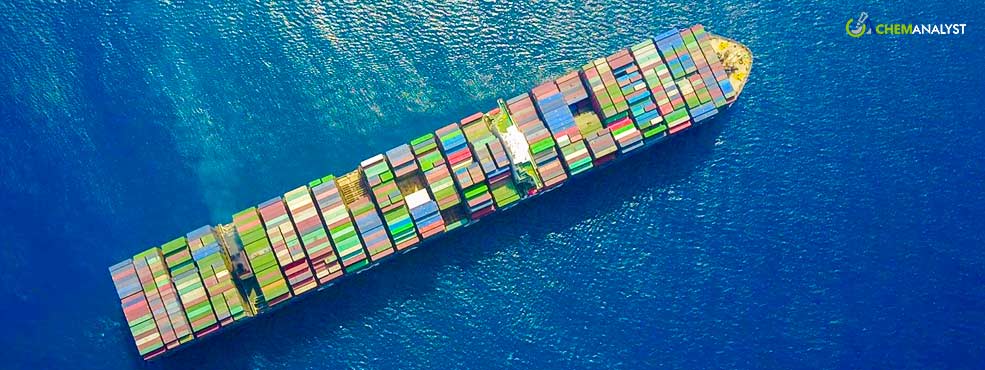Welcome To ChemAnalyst

Following a gradual uptick in freight activities throughout January 2024, there was a subsequent decline of approximately 1.5% in freight between East Asia and North Europe during February 2024. However, the freight on this route remains very high, surpassing the threshold limit. This dip was primarily attributed to the normalizing impact of the Red Sea crisis, resulting in reduced shipping pressure and a smoother flow of shipments in the shipping industry compared to the previous month. The persisting Red Sea situation continues to affect capacity and equipment, prompting carriers to uphold rates through mechanisms like GRI/PSS/Contingency Charges. However, there is growing scrutiny regarding the additional costs associated with re-routing via the Cape of Good Hope. Expectations indicate that the substantial of the Peak Season will be mitigated or potentially dropped entirely in March. Rates are anticipated to decrease from March 1 onwards, continuing on a downward trajectory due to low demand.
The Tightening of capacity and the increase in tender rejections observed in January, unusual for the period, were mainly influenced by severe winter weather conditions. It's worth noting that recent January have traditionally benefited from tax refund season, providing a temporary boost to consumption. However, February has presented a softer landscape, with tender rejections falling back below 5% (though not reaching the lows) and spot rates experiencing a decline.
A recent development in the industry, the introduction of the Gemini Cooperation, a collaboration between Maersk and Hapag-Lloyd scheduled to launch in February, is poised to bring about notable changes in the global and Asian freight industries, particularly within the shipping sector. Their proposed "hub-and-spoke" network aims to streamline operations by consolidating calls at five key hubs in Asia, including Shanghai, Ningbo, Yantian, Singapore, and Tanjung Pelepas in southern Malaysia. While this strategy is expected to enhance efficiency in the movement of goods between major hubs globally, it may also lead to the downgrade of feeder ports, impacting their existing roles as key cargo gateways.
For the global freight industry, the changes led in by the Gemini Cooperation signify a potential reconfiguration of shipping routes, fostering efficiency and optimization. However, the downgrading of specific ports may introduce shifts in the competitiveness and accessibility of those affected. In the Asian context, the consolidation of calls at designated main hubs is likely to redirect the flow of cargo, influencing the operational landscape of both major and feeder ports.
In the shipping industry, the Gemini Cooperation's "hub-and-spoke" model aims to bring about improvements in route optimization and operational effectiveness. Nevertheless, concerns arise with the downgrading of crucial cargo gateways, as exemplified by Busan, prompting calls for a reconsideration of vessel schedules to maintain connectivity and service levels. Stakeholders in the shipping industry will closely monitor the consequences of these changes on routes, capacity, and overall logistical efficiency.
We use cookies to deliver the best possible experience on our website. To learn more, visit our Privacy Policy. By continuing to use this site or by closing this box, you consent to our use of cookies. More info.
